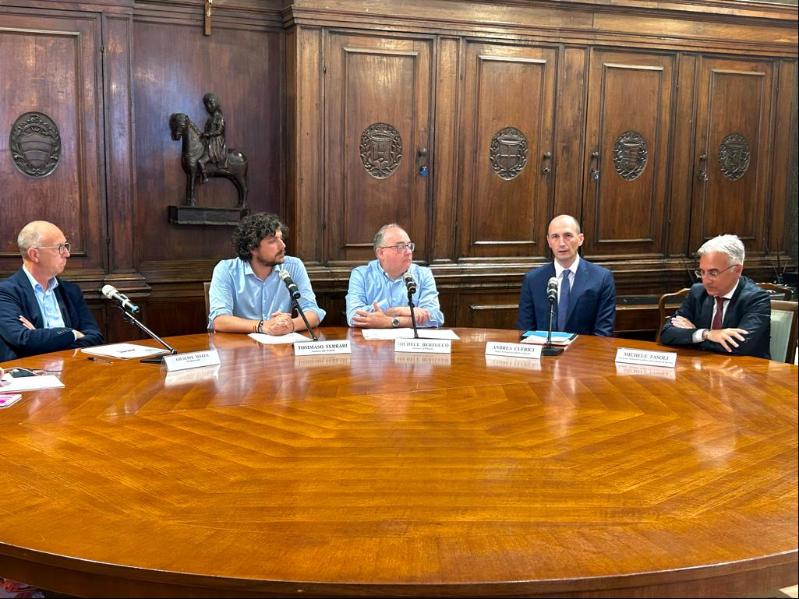
- The project involves the creation of four zero-emission trolleybus lines covering a total of 23 km, the purchase of 39 electric trolleybuses and the construction of a new depot.
- The work is part of the broader urban sustainable mobility plan aiming to combine efficient public transport, reduced emissions and modal integration.
- The new infrastructure will act as the backbone of the city’s public transport network and will be connected to extra-urban lines via a series of interchange hubs.
The European Investment Bank (EIB) has granted a €62 million loan to Azienda Mobilità Trasporti Turismo e Territorio S.p.A. (AMT3) to promote the transition to sustainable mobility with low environmental impact in the municipality of Verona. The project involves the creation of four trolleybus lines covering a total of 23 km, the purchase of 39 electric trolleybuses and the construction of a new depot to store and maintain them. Work has already begun and is expected to be completed by November 2025, for entry into service in the first half of 2026.
The electrification of the bus network and expected modal shift from private cars will make public transport in the municipality of Verona more efficient, more sustainable and better value for money, helping to reduce both traffic and CO2 emissions. EIB estimates indicate that once the work is completed, total time spent on the public transport network will decrease by 6%, while average operating costs per seat-km for the trolleybus lines will be 20% lower, generating energy savings of 4.5%.
Approximately 100 000 passengers a day will benefit from greener public transport as a result of this operation, in line with the goals set out in the EIB Transport Lending Policy and with the Paris Agreement.
EIB Vice-President Gelsomina Vigliotti said: “Transport plays a key role in society and the economy, while also being among the biggest sources of air pollution. With the support of the EIB as the EU climate bank, the municipality of Verona will be able to promote the transition to sustainable mobility, helping to cut the operating costs and CO2 emissions of its transport fleet.”
Municipal Councillor for Mobility and Traffic Tommaso Ferrari added: “Following the executive approval of the updated economic and financial plan, the contribution agreement between the municipality, AMT3 and the EIB signed today will enable us to continue the trolleybus work to finish it by 2026, as set out in the timeline. I should point out that the EIB agreement covers the cost of the work performed by the municipality and is vital for planning all of the worksites connected to the four planned trolleybus lines to be built in the city.”
The European Investment Bank (EIB) is the long-term lending institution of the European Union owned by its Member States. It provides long-term financing for sound investments that contribute to EU policy. The Bank finances projects in four priority areas: infrastructure, innovation, climate and environment, and small and medium-sized enterprises (SMEs). Between 2019 and 2022, the EIB Group provided €45 billion in financing for projects in Italy.